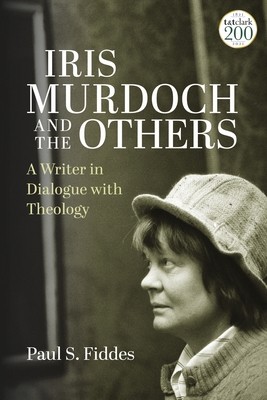
- We will send in 10–14 business days.
- Author: Paul S Fiddes
- Publisher: Bloomsbury Publishing PLC
- ISBN-10: 0567703347
- ISBN-13: 9780567703347
- Format: 15.6 x 23.4 x 1.4 cm, kieti viršeliai
- Language: English
- SAVE -10% with code: EXTRA
Reviews
Description
The "others" examined by Fiddes are mainly those with whom Murdoch entered into explicit dialogue in her novels and philosophical writing-including Immanuel Kant, Simone Weil, Dietrich Bonhoeffer, Rudolph Bultmann, Paul Tillich, Don Cupitt, Donald Mackinnon, and Jacques Derrida. This "historic" dialogue is, however, placed within a wider dialogue between literature and theology being conducted by the author, and "others" are brought into relation with Murdoch in order to illuminate this more extensive conversation-notably the poet Gerard Manley Hopkins and the feminist philosopher Julia Kristeva.
The book demonstrates that characteristic themes in Murdoch's novels and philosophy-the love of the Good, the death of the ego, illusory consolations, the death of God, the modifying of the will by "waiting", the sublime and the beautiful, and attention to other things and persons-all take on a greater meaning when placed in the context of her life-long conversation with theology. The exploration of this context is deepened in this volume by reference to annotations and notes that Murdoch made in a number of theological books in her personal library.
EXTRA 10 % discount with code: EXTRA
The promotion ends in 23d.09:55:24
The discount code is valid when purchasing from 10 €. Discounts do not stack.
- Author: Paul S Fiddes
- Publisher: Bloomsbury Publishing PLC
- ISBN-10: 0567703347
- ISBN-13: 9780567703347
- Format: 15.6 x 23.4 x 1.4 cm, kieti viršeliai
- Language: English English
The "others" examined by Fiddes are mainly those with whom Murdoch entered into explicit dialogue in her novels and philosophical writing-including Immanuel Kant, Simone Weil, Dietrich Bonhoeffer, Rudolph Bultmann, Paul Tillich, Don Cupitt, Donald Mackinnon, and Jacques Derrida. This "historic" dialogue is, however, placed within a wider dialogue between literature and theology being conducted by the author, and "others" are brought into relation with Murdoch in order to illuminate this more extensive conversation-notably the poet Gerard Manley Hopkins and the feminist philosopher Julia Kristeva.
The book demonstrates that characteristic themes in Murdoch's novels and philosophy-the love of the Good, the death of the ego, illusory consolations, the death of God, the modifying of the will by "waiting", the sublime and the beautiful, and attention to other things and persons-all take on a greater meaning when placed in the context of her life-long conversation with theology. The exploration of this context is deepened in this volume by reference to annotations and notes that Murdoch made in a number of theological books in her personal library.


Reviews